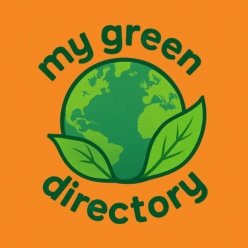🌱 What Is Citizen Science?
How to use citizen science to support conservation efforts: Citizen science involves volunteers—of all ages and backgrounds—collecting and sharing scientific data to support real research. This collaborative approach not only advances conservation but also engages the public with science, making environmental stewardship accessible and impactful.
📝 How Citizen Science Supports Conservation
- Data Collection at Scale: Volunteers gather vital information on wildlife, plants, pollution, and climate, providing scientists with large datasets that would be costly or impossible to collect otherwise.
- Informing Policy and Action: The data informs conservation strategies, habitat protection, and environmental policy, ensuring decisions are based on robust, up-to-date evidence.
- Community Engagement: Citizen science fosters a sense of ownership and responsibility for local and global ecosystems, inspiring ongoing conservation efforts.
🌍 Examples of Citizen Science Projects for Conservation
| Project Name | Focus Area | How You Can Help |
|---|---|---|
| iNaturalist | Plant & animal biodiversity | Record species sightings in your area |
| Bumble Bee Watch | Insect population monitoring | Submit bumblebee photos and locations |
| Seasearch | Marine habitat health | Divers/snorkellers record underwater life |
| Big Seaweed Search | Climate and marine health | Log seaweed types on UK beaches |
| Audubon Christmas Bird Count | Bird population trends | Join annual bird counting events |
| Project BudBurst | Plant phenology & climate change | Track flowering and leafing dates |
| Big Microplastic Survey | Plastic pollution | Collect and report microplastic samples |
| National Plant Monitoring Scheme | Plant biodiversity | Survey wild plants in local habitats |
| Beach Cleans | Litter and habitat protection | Join or organize local clean-up events |
Many more projects exist across wildlife, weather, water quality, and even astronomy—find one that matches your interests and skills.
🛠️ How to Get Involved
- Find a Project: Search platforms like iNaturalist, UK Centre for Ecology & Hydrology, or your local conservation group for opportunities.
- Join and Learn: Many projects offer online training or easy-to-use apps for data collection.
- Collect Data: Follow project guidelines to observe, record, and submit your findings—whether spotting wildlife, measuring rainfall, or picking up litter.
- Share and Connect: Engage with the project community, attend events, and share your experiences to inspire others.
🌟 Real-World Impact
- Conservation Success: Data from citizen scientists has led to new protected areas, better wildlife management, and targeted pollution clean-ups.
- Education and Empowerment: Participants gain scientific skills, environmental knowledge, and a deeper connection to nature.
- Global Collaboration: Citizen science unites people worldwide in the fight to protect our planet.
Join a citizen science project today and help shape the future of conservation—one observation at a time!
Disclaimer
The content provided on MyGreenDirectory.com is for general informational purposes only and does not constitute professional, legal, financial, environmental, or health advice. While we aim to highlight sustainable businesses, products, and services, we encourage all users to independently verify claims, certifications, and practices before making any decisions or purchases.
Some of the links on this site may be affiliate links. This means we may earn a small commission if you click through and make a purchase, at no additional cost to you. These commissions help support the maintenance of the directory, but they do not influence our editorial content or the inclusion of listings.

Comments